Brief History of the National Wrestling Alliance (1948-Present)
- jrkdent
- Sep 18, 2024
- 3 min read

The National Wrestling Alliance (NWA) is one of the most significant organizations in the history of professional wrestling. Founded in 1948, the NWA began as a governing body that brought together various independent wrestling promotions under one umbrella. The goal was to create a unified world champion, establish cooperative business practices among promoters, and set standards for talent and title defenses across different territories.

Formation and Early Years (1948-1960s):
The NWA was formed in Waterloo, Iowa, by several regional promoters, including Paul "Pinkie" George, Al Haft, Sam Muchnick, Tony Stecher, Harry Light, Don Owen and others.

(1961 NWA Board of Director's Meeting, Toronto, Hosted by Frank Tunney)
These promoters came together to create a system where they could protect their own territories and develop a mutually beneficial relationship by recognizing a single World Heavyweight Champion.
The first NWA World Heavyweight Champion, Orville Brown, was crowned in 1948. However, he was forced to vacate the title after a car accident in 1949, leading to Lou Thesz becoming the champion.

Thesz became one of the most legendary champions in wrestling history, holding the title multiple times and defending it across the country.

Territory System and Golden Age (1950s-1980s):
The NWA's territory system was the backbone of professional wrestling in North America for several decades. The organization divided the United States, Canada, and parts of Japan, Mexico, and the UK into different territories, each run by a regional promoter. Some of the most notable territories included:

Jim Crockett Promotions (Mid-Atlantic) (1952-1993)

Championship Wrestling from Florida (1949-1987)

Georgia Championship Wrestling (1944-1984)

Maple Leaf Wrestling (Toronto) (1930-1986)

Pacific Northwest Wrestling (1925-1992)

Stampede Wrestling (Calgary) (1948-1989)

World Class Championship Wrestling (Texas) (1966-1990)

All Japan Pro Wrestling (Japan) (1972-Present)

New Japan Pro-Wrestling (Japan) (1972-Present)
Each territory had its own roster of talent, storylines, and champions. The NWA World Heavyweight Champion would travel between these territories, defending the title against the top contenders in each region, which gave the champion a national—and sometimes international—presence.
Promoters and Key Figures:
Promoters like Vince McMahon Sr. (WWWF), Sam Muchnick (St. Louis), Fritz Von Erich (Texas), Eddie Graham (Florida) and Jim Crockett Sr. (Mid-Atlantic), were influential figures in the NWA. They played vital roles in maintaining the alliance's structure, controlling bookings, and ensuring the champion was properly managed.

Challenges and Decline (1980s-1990s):
By the early 1980s, the NWA faced significant challenges. In 1983, Vince McMahon Sr. passed and left the business to his ambitious son. Vince McMahon Jr., who took over the World Wide Wrestling Federation (WWWF, later WWF), began an aggressive expansion campaign, signing top talents from various NWA territories and broadcasting nationally. McMahon's strategy directly threatened the territory system, and many promotions either folded or left the NWA to join the WWF.
One of the NWA's most significant moments of decline was in 1984, when Georgia Championship Wrestling, an NWA member, sold its TV timeslot to the WWF. This was followed by the departure of Jim Crockett Promotions (JCP), which was the largest and most influential NWA member by the mid-1980s. JCP eventually became World Championship Wrestling (WCW), which left the NWA in 1993.

Modern Era (1990s-Present):
The NWA continued as a much smaller organization after WCW's departure. During the 1990s and 2000s, it became a licensing body for small independent promotions.

In 2002, the NWA aligned with Total Nonstop Action Wrestling (TNA), allowing TNA to use the NWA World Heavyweight and World Tag Team Championships until 2007, when TNA decided to create its own titles.

In 2017, the NWA was purchased by Billy Corgan, frontman of The Smashing Pumpkins and a long-time wrestling enthusiast. Under Corgan's leadership, the NWA has rebranded itself, embracing a traditional studio wrestling format reminiscent of its earlier days, complete with shows like "NWA Powerrr."
Legacy and Influence:
The NWA's influence on professional wrestling is immeasurable. It was the foundation of the territory system that allowed countless promotions and wrestlers to flourish. It produced some of the most iconic champions, such as Dory Funk Jr.,, Harley Race, Jack Brisco, Terry Funk, Dusty Rhodes, and Ric Flair. The NWA's model of cooperation among promoters set a precedent that influenced wrestling governance and cooperation for decades.
The NWA remains active today, with a renewed focus on presenting classic wrestling values in a modern context. It continues to celebrate its rich history while carving out a niche in the current wrestling landscape.



















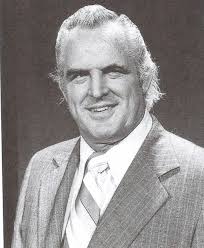


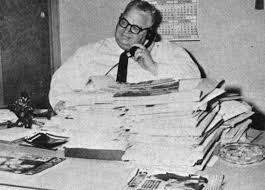









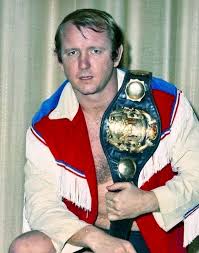

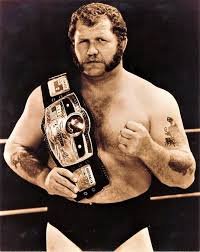





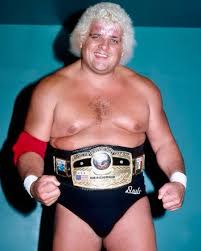


Comments